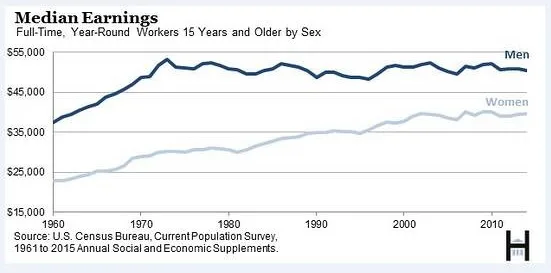When it comes to wage stagnation, particularly for men in the United States, the statistics are surprising, no matter how many times you’ve heard it.
“The typical man with a full-time job earned $50,383 last year…the typical man with a full-time job in 1973 earned $53,294, measured in 2014 dollars to adjust for inflation,” according to Brookings. So, over 40 years, the average salary has dropped.
What does this mean for the economy?
Henry Ford once said, “There is one rule for the industrialist and that is: Make the best quality of goods possible, at the lowest cost, paying the highest wages possible.” Intuitively, Ford seemed to understand that when workers have no disposable income to put back into the economy, businesses anticipate weak sales. Hiring is negatively impacted, which in turn places additional negative pressures on the economy.
“Stagnant wages aren’t just a problem for individuals. When workers . . . don’t have money to spend, it’s a drag on the whole economy,” NPR reports.
“U.S. shoppers may be cautious with their disposable income this year, restrained by average hourly wages that the Labor Department says climbed just 2.2 percent in August from the year before. Slowing growth and financial-market volatility also may shake consumers’ willingness to spend, despite benefits from higher employment rates, better home values and lower gas prices. Several retailers have responded by keeping seasonal hiring flat or slightly below last year’s levels,” Bloomberg reports.
Toys “R” Us Inc. will bring on 5,000 fewer temporary employees this holiday season compared with last year; Macy’s Inc. will reduce seasonal hires by 1,000 this year while United Parcel Service, Target Corp. and Wal-Mart Stores Inc. will maintain the same number of holiday hires.
Keeping the economy moving in an upward trajectory is particularly important today given the fragility of the economic recovery. “Low pay across the economy as a whole threatens to put a lid on the growth that one would otherwise expect after a recession,” The Economist reports. In other words, low wages are an economic issue for everyone, especially businesses.

